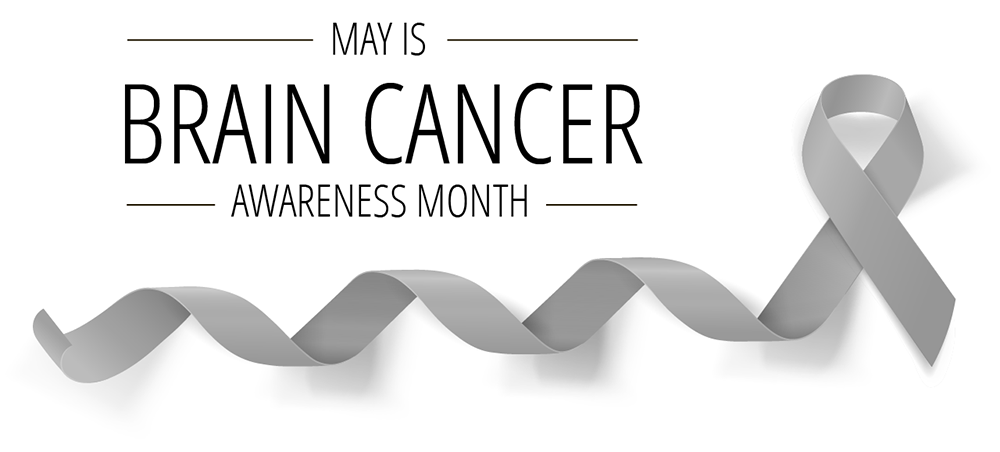May is National Brain Cancer Awareness Month.
The American Cancer Society estimates that approximately 24,820 new cases of these tumors will be diagnosed each year.
Know the facts about brain cancer and brain tumors:
Did you know?
Primary brain tumors start in the brain and typically remain there. They are more common in children and older adults. Metastatic brain tumors begin as cancer in another part of the body before spreading to the brain. They occur more often in adults than in children.
Risk factors
- Radiation exposure: Exposure to radiation, most often from some type of radiation therapy, increases the risk
- Family history: There is an increased risk when immediate family members have well-defined disorders, such as Neurofibromatosis type 1, Neurofibromatosis type 2, tuberous sclerosis, Von Hippel-Lindau disease, or Li-Fraumeni syndrome
- Weakened immune systems: Patients with impaired immune systems have an increased risk of developing lymphomas of the brain or spinal cord
Signs and symptoms
Patients experiencing any of these symptoms should consult a physician.
- Headaches, especially headaches that get worse over time
- Nausea and/or vomiting
- Blurred vision
- Balance problems
- Personality or behavior changes
- Seizures
- Drowsiness or even coma
About brain tumors
Primary brain tumors differ from the more common metastatic brain tumors that develop and then later spread to the brain. The type of tumor may determine the course of treatment. Brain tumors are generally separated into four grades (I, II, III, and IV). Tumors may either be benign or malignant. Benign tumors are noncancerous but can still be dangerous as they can cause damage within the brain. Malignant tumors are cancerous and are more likely to spread.
Screening
There are no widely recommended tests used to screen for brain cancer or spinal cord tumors. Most brain tumors are found once a person starts having symptoms. People who have a higher risk for brain tumors should obtain frequent physical exams and other tests beginning at a young age.
Prevention
Radiation exposure is the only known environmental factor proven to cause brain tumors. Right now, there are no other activities shown to make a difference in prevention.
Minnesota Oncology is dedicated to helping patients in the Twin Cities and Western Wisconsin in the fight against brain cancer by providing a full range of advanced cancer care services in an environment that allows patients to remain close to their homes and their support networks of family and friends.
As a member of The US Oncology Network, we can quickly bring the latest advances in therapies, research and technology to where patients live. As a result, patients access the best possible treatment with the least amount of disruption to their daily lives.




